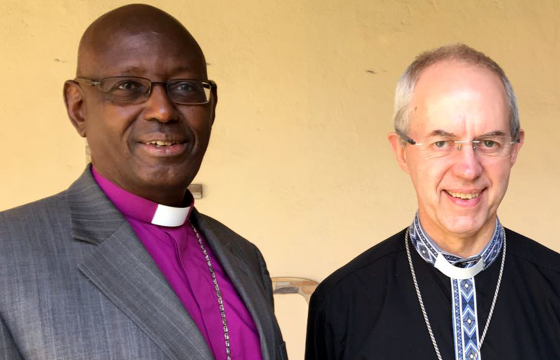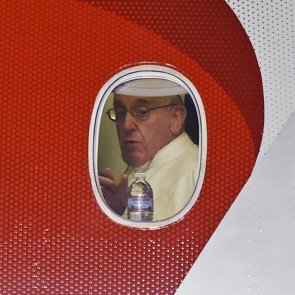Pope Francis will make a two-day trip to Egypt next month in what will be an important step in his attempts to bolster Catholic-Muslim relations and build allies in combatting religiously-inspired violence.
The Vatican announced today that the Pope will go to Cairo on 28-29 April after accepting an invitation to visit from President Abdel Fattah Al-Sisi, the Grand Imam of the Al-Azhar Mosque, Ahmed el-Tayeb - which runs the famous university - and the country’s local church leaders.
This will be Francis' seventh trip to a Muslim-majority country and comes soon after the relaunching of dialogue between the Vatican and major sunni academic centre, the Al-Azhar university.
The details of Francis' trip to Egypt have not been revealed, although it is likely that Francis’ programme will include a visit to the Cairo-based Al-Azhar, a move that would see him following in the footsteps of John Paul II who went there in 2000.
Relations between Egypt and the Vatican were put under strain in 2011 when Benedict XVI’s called for better protection of Christian minorities following an attack on a church in Alexandria, with the remarks viewed as “interference” in the country’s internal affairs and led to Egypt recalling their Holy See ambassador.
At the same time Al-Azhar broke off ties with the Vatican with the relationship only being officially relaunched in October 2016 which came following an important meeting between the Pope and Grand Imam el-Tayeb. The renewal of dialogue meant that last month the Holy See’s Pontifical Council for Culture and the Al-Azhar centre for dialogue met for a two day symposium in Cairo on “confronting the phenomena of fanaticism, extremism and violence”.
Francis’ visit comes as Egypt witnesses a rise in attacks on Christians and an insurgency from Islamic State - a group that follows a fundamentalist sunni-based ideology. Observers say that Islamic State has grown by siphoning off followers from the Muslim Brotherhood, who had been in power in Egypt until a 2013 military coup led by President Al-Sisi.
Throughout his papacy, Francis has consistently condemned religious violence “in the name of God” but has also been careful to de-link the Islamic faith from acts of terror, something he was quick to stress following the murder of French priest Fr Jacques Hamel by Muslim extremists.
Francis’ approach has been welcomed by Islamic leaders: the latest example of which was last Monday (13 March) when the King of Morocco, a descendant of the Prophet Mohammed, sent a goodwill message to the Pope as he celebrated the fourth anniversary since his election.
Italian government adviser, Professor Younis Tawfiq, told La Stampa’s “Vatican Insider” that the message from Morocco’s monarch was significant: the king is keen to build an “enlightened Islam” and he sees the Pope as a global moral leader who can help him in this pursuit.
Tawfiq also said he hoped that one day Francis could visit the Islamic powerhouse of Saudi Arabia which he said would have “epochal implications for the world”.
The Holy See has strong links across the Muslim world: these links include Iran - which is Shia dominated; and also a recent strengthening of the diplomatic representation in Syria by making the Holy See's ambassador to the country a cardinal.
The Pope has consistently stressed the importance of cultivating a “mutual respect” between Christians and Muslims, and has built strongly on the steps taken by John Paul II to bolster dialogue. The late Pope, and now saint, built on the landmark teaching of the Second Vatican Council document “Nostra Aetate” which talked about the Church’s “esteem” for Muslims and talked of the two faiths working together to promote peace.
And this week Francis appointed as a bishop in Algeria, a former British army officer turned missionary priest who has risked his life to serve both Muslims and the tiny Christian community, in what could be seen as a model for Catholic engagement in Islamic countries.
Recent years have seen moments of difficulty between Catholics and Muslims, coming to a head following Benedict XVI’s 2006 Regensburg address which sparked violence against Christian churches in the Islamic world and street demonstrations. In that speech the Pope Emeritus quoted a 14th Century Christian emperor saying that Mohammed brought things that were “evil and inhuman” and sought to spread faith “by the sword.”
Paradoxically that speech led to an invitation from more than 130 Islamic scholars calling for dialogue with the Church in what was known as the “common word” forum, based on shared Islamic and Christian principles.
These discussions are still going on although the Holy See has indicated its frustration about the restrictions on Christian worship in some Muslim countries.




 Loading ...
Loading ...